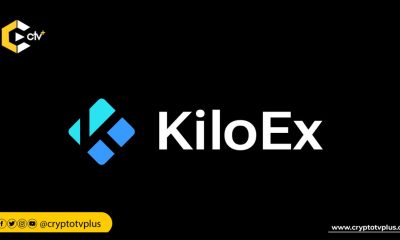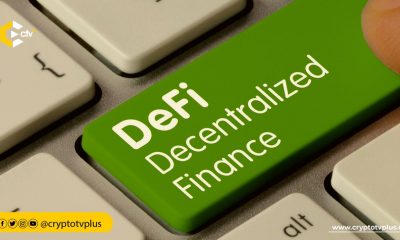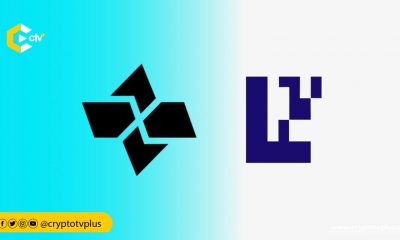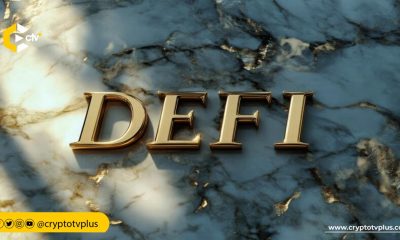FEATURED
Beginner’s Guide to DeFi Insurance: the Risks, Benefits & Providers
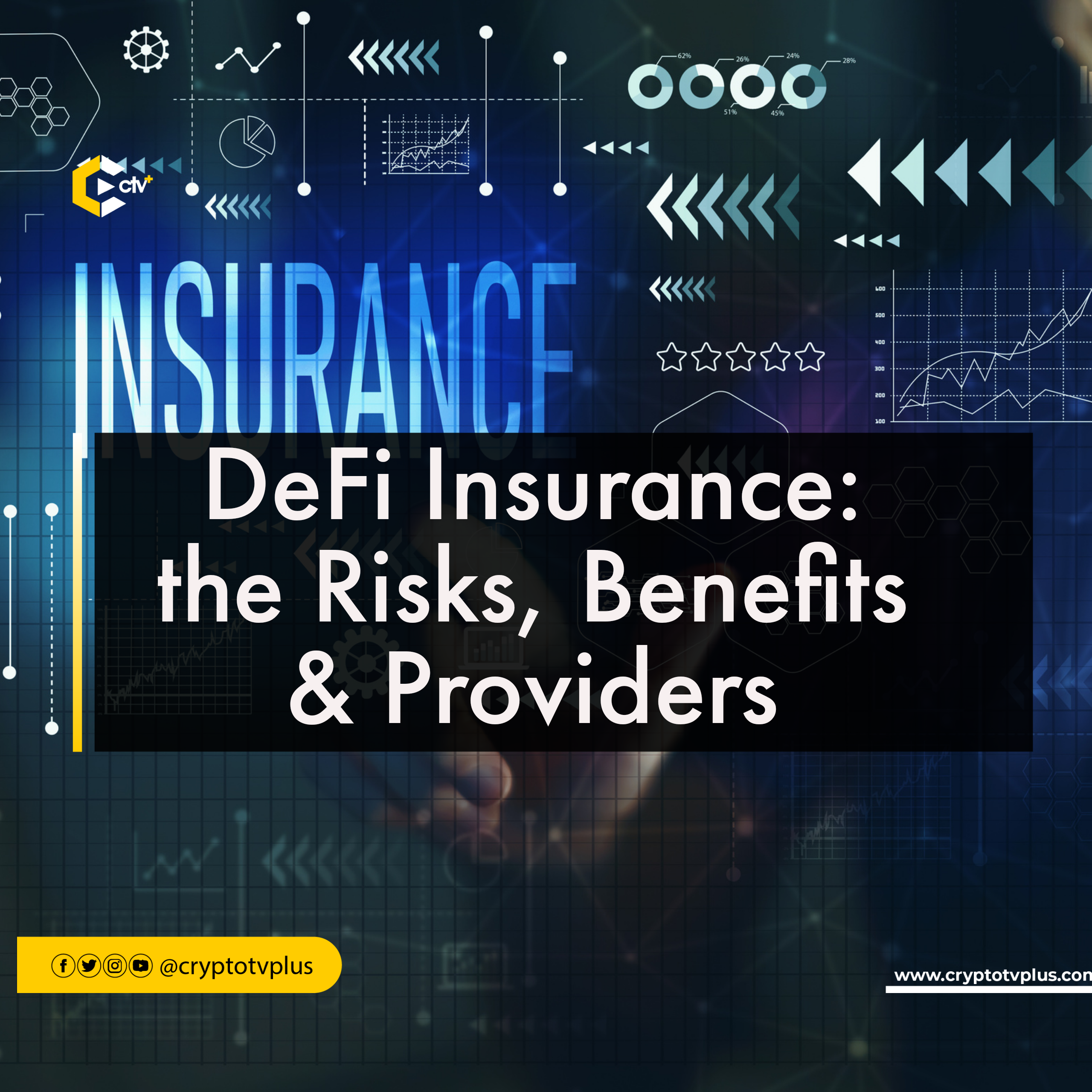
The world of decentralized finance (DeFi) has exploded in popularity in recent years, offering users an alternative to traditional financial systems. With DeFi, users can trade, lend, borrow, and invest in a trustless, decentralized financial environment. However, as with any new technology, there are risks involved. Hacks, exploits, and other unforeseen events can lead to significant losses for users. That’s where DeFi insurance comes in.
In this article, we will explore how DeFi insurance can protect you from these risks and keep your investments safe.
How DeFi insurance works
Before we delve into how DeFi insurance works, it is crucial to understand the risks associated with investing in DeFi. One of the biggest risks is smart contract failure.
Smart contracts are self-executing contracts that are designed to execute automatically when certain conditions are met. However, they are not infallible and can contain bugs or errors that could lead to significant financial losses. Other risks associated with DeFi investments include hacking, flash loan attacks, and liquidity risks. These risks can result in the loss of funds, making it crucial for investors to have some form of protection.
DeFi insurance works by pooling funds from individuals who want to protect themselves from unexpected losses such as hacks, halted withdrawals, and stablecoin collapses. The insurance pools are crowd-funded, and the premiums depend on the events you choose to be insured against.
Once you purchase DeFi insurance, the policy is written as a smart contract on the blockchain. The policy outlines the parameters for payouts, the oracle or oracles that confirm the parameters have been met, and other terms. Since smart contracts are self-executing, the computer code is the policy and manages the policy.
When a potential event presents the risk of being financially punishing, the policy pays out a certain amount determined as the policy is written, as long as the parameters for payouts have been met.
Decentralized Insurance vs. Traditional Insurance
The key difference between DeFi insurance and traditional insurance is that decentralized insurance protocols are governed by smart contracts rather than by a central authority. This means that claims processing and payouts are entirely automated, eliminating the need for intermediaries.
Advantages of DeFi Insurance
DeFi insurance has several advantages over traditional insurance. Some of these advantages are:
- Customization of Coverage: DeFi insurance allows investors to customize their coverage to suit their specific needs. Policyholders can choose exactly what events they want to be insured against, and the premiums will depend on the events chosen. DeFi insurance policies can also be written for specific time periods, providing flexible coverage options.
- Cost Savings: Decentralized insurance protocols can offer cost savings over traditional insurance, as there are no intermediaries involved. This means that investors can save on administrative costs and premiums, making DeFi insurance a more cost-effective solution.
- Quick Claims Processing: DeFi insurance allows for quick claims processing and payout, as claims are automatically processed by smart contracts. This eliminates the need for manual claims processing and ensures that claims are paid out quickly and efficiently.
- Transparency and Security: DeFi insurance protocols are built on blockchain technology, which provides transparency and security. Claims processing and payouts are recorded on the blockchain, providing a transparent and tamper-proof record of all transactions.
Limitations of DeFi Insurance
While DeFi insurance has several advantages, it also has some limitations. Some of these limitations are:
- The insurance pool is crowd-funded: If a covered event occurs, the money pledged to cover that event is sent to the affected parties. If the event does not happen, the money sits in the pool, earning yield over time. This means that policyholders may not get their full premiums back if a covered event does not occur.
- It is a developing industry: While there are several DeFi insurance protocols available, not all of them have been thoroughly tested or proven effective. Policyholders should carefully research and choose a reputable DeFi insurance protocol to ensure they are adequately protected.
- Limited Regulatory Oversight: Decentralized insurance protocols are not subject to the same regulatory oversight as traditional insurance providers. This means that there may be less protection for investors in the event of fraud or other issues.
- Smart Contract Risks: DeFi insurance is reliant on smart contracts, which are not infallible. Smart contracts can contain bugs or errors that could result in the loss of funds, making it crucial for investors to thoroughly vet the insurance protocol and smart contract before purchasing coverage.
Top DeFi Insurance Providers and Products
There are several DeFi insurance providers and products available in the market, each with its own unique features and benefits.
- Nexus Mutual: Nexus Mutual is one of the most popular DeFi insurance providers. It offers coverage against smart contract failures, exchange hacks, and other risks associated with DeFi investments. Nexus Mutual is a mutual insurance platform, which means that investors pool their funds together to create a shared insurance pool.
- Unslashed Finance: Unslashed Finance offers coverage against smart contract failures and exchange hacks. It also offers coverage against other risks, such as custody risks and operational risks. Unslashed Finance uses a risk-sharing model, which means that investors share the risk of claims payouts.
- ArmorFi: ArmorFi offers coverage against smart contract failures and other risks associated with DeFi investments. It uses a staking model, which means that investors must stake the Armor token to purchase coverage.
Conclusion: Is DeFi Insurance Right for You?
DeFi insurance offers several benefits over traditional insurance, including customization of coverage, cost savings, quick claims processing, and transparency and security. However, it is not without its risks and limitations, such as limited regulatory oversight and smart contract risks.
If you are considering investing in DeFi, it may be worth considering purchasing DeFi insurance to protect your investments against potential risks. However, it is crucial to thoroughly vet the insurance protocol and smart contract before purchasing coverage to ensure that you are getting the protection you need.
Thank you for reading this article on DeFi insurance. We hope that it has provided you with a better understanding of this rapidly growing field.
Read also: Can memecoins make you rich?





